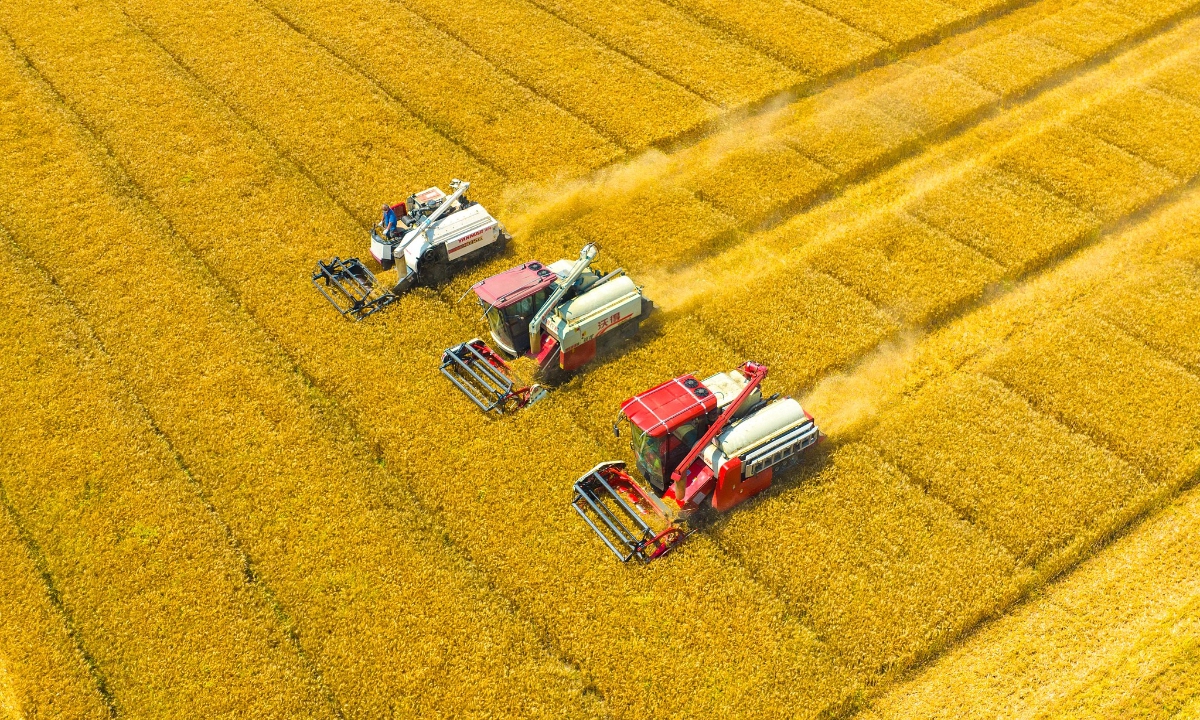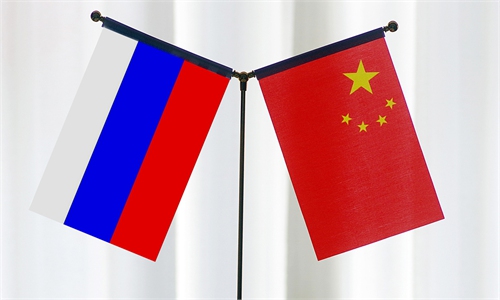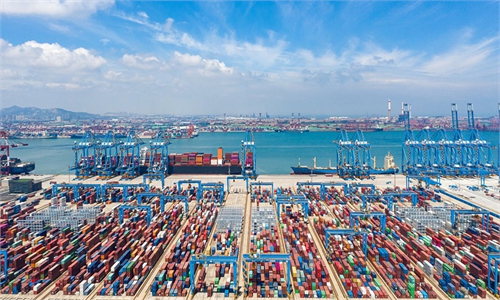
Grain harvest Photo: CFP
Against the backdrop of continued tight supplies of grain around the world, there is a growing necessity for China and Russia to push forward their grain trade cooperation, which is of great significance to China's food security and is an effective way to stabilize global food supply and prices.The New Russia-China Land Grain Corridor - a group of companies managing the development of grain production and infrastructure in Russia's Ural Mountains, Siberia and the Russian Far East - will work with state-backed China Chengtong International Investment to create a logistics hub located between Vladivostok in Russia's Far East and China's northeastern province of Heilongjiang, according to agreements several Chinese and Russian companies signed on Monday during the Eastern Economic Forum being held in Vladivostok, the South China Morning Post reported.
As part of the New Russia-China Land Grain Corridor, the hub marks another step forward in the implementation of the bilateral grain trade program, which is a key program under the joint initiative of the top leaders of the two countries. It represents strengthened cooperation in terms of bilateral agricultural and grain trade.
At a time when the US and some other Western countries are still trying to limit Russia's grain exports, resulting in relatively tight global food supplies, the construction of a new land grain corridor is conducive to China's food security strategy and to stabilizing the international grain market.
Due to the impact of the ongoing Ukraine crisis, climate change, rising food prices and bans on grain exports in some countries like India, concerns about the food crisis in some net grain-importing developing countries have been lingering in recent years.
The Russia-Ukraine conflict has also affected Ukraine's grain exports. Therefore, the disrupted grain exports from the two major grain producers have had a serious negative impact on the global food supply, especially for some developing countries.
As China is the second-most populous country in the world, its demand for food is huge. Although the Chinese government has managed to bring its staple food self-sufficiency rate above 100 percent and its grain self-sufficiency rate above 95 percent, the difference between the area of arable land and the population still poses challenges. China is home to about one-fifth of the global population, but has only 7 percent of the world's arable land.
Meanwhile, in order to pursue a diversified food structure, imports of food such as soybeans, corn, wheat, potatoes and other agricultural products are inevitable. This is also why China needs to expand international food trade on the basis of food self-sufficiency. As a major supplier of food, Russia has long been an importance source of China's imports of agricultural products.
China-Russia cooperation is particularly important for China's food security, and the new land grain corridor has the potential to further promote bilateral grain trade by providing a new transportation solution for grain cooperation. Compared with traditional maritime and air transport, land transport is faster, more flexible and more reliable. It's also less affected by such factors as emergencies and extreme weather.
Also, diversified methods of food transport are part of China's pursuit of food import diversification, which can reduce China's grain import risk and the time and cost of food imports. This will help reduce food prices.
China's efforts to ensure its food security are vital not only to China's stability and development, but also to global food security and economic development. As China is one of the world's largest producers and consumers of grain, any change in its food supply will have a direct impact on the global food market.
By ensuring the food security of one-fifth of the global population, China can reduce its dependence on the international market, which is conducive to stabilizing global food prices and maintaining a supply-demand balance, offering certainty to the global market and thus contributing to the stable development of the world economy.



